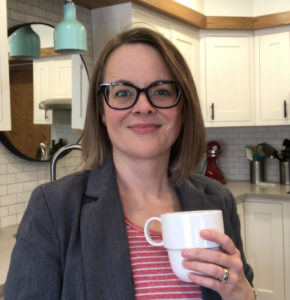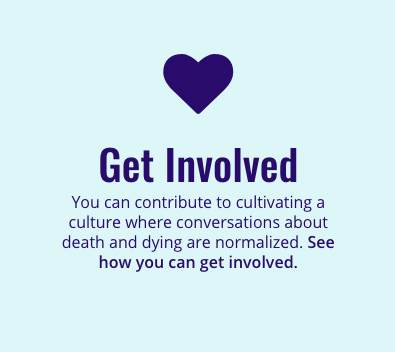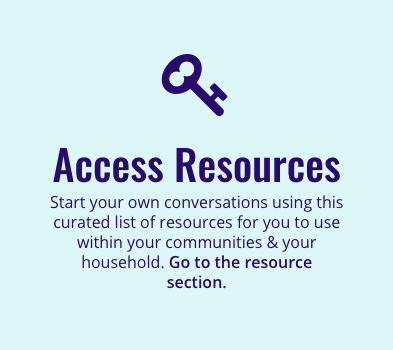End in Mind encourages people to have difficult conversations about death and end of life, and that includes will and estate planning. As an estate planning and probate attorney with law firm Wagner Oehler, Ltd., in Rochester, Minnesota, Jen Gumbel knows a lot about this subject. We are thrilled that she agreed to share some of her wisdom and clear up some common misconceptions related to estate planning. To learn more, check out Jen’s website, podcast, and on-demand workshop, An Organized (after)Life. The website includes a variety of planning tools, including tips for talking to parents about estate planning, an asset checklist, a probate glossary, and legacy prompts.
By Jen Gumbel
I can’t overstate how important it is to have an estate plan, regardless of the amount of money you have. An estate plan is thinking through the legal to-do list you’ll leave and taking steps now so that you leave a manageable to-do list, not a mess, after you die.
Here’s why it’s important: A legal mess makes it hard for the people grieving you to deal with much else. That makes it harder to remember the things that were important about you and put in the effort to carry those things on. These things are your legacy, whether or not you’re wealthy. Every adult will leave legal issues, regardless of wealth. But if you don’t address them, you will leave a mess, which puts a shelf-life on your legacy. Time and time again, attorneys see estate planning misconceptions create messes that could have easily been avoided. So what are these misconceptions and what should you know about them?
Misconception 1: A will tells us what happens to everything. It doesn’t. It only tells us what happens to things that don’t already say where they go. A common example of something that says where it goes is life insurance. When you take out a policy, you are asked who should receive the check when you die; that person is already listed in the beneficiary designation. The proceeds will transfer according to the beneficiary designation, not your will.
Here’s how this misconception can cause a mess: Let’s say you get a life insurance policy and name your wife as beneficiary, then later you get a divorce. You know you need to update your will and do so, but you don’t think about changing the beneficiary on your life insurance policy. Then you die. The insurance company is ready to write the check out to your ex-wife. This scenario is so common that some states have laws that allow a person’s closest relatives to ask the court to fix it. But it could have been avoided altogether through a simple phone call to your insurance agent.
Misconception 2: A will prevents probate. It doesn’t. Remember, a will says what happens to things that don’t already say where they go. In other words, a will tells us what happens to things that are stuck. Depending on what’s stuck, state laws might require a personal representative, also called an executor, be appointed to move the assets. That’s a probate. Your will is your statement of where you want your estate to go and who should be responsible for getting it there. A will doesn’t prevent probate. It’s for probate.
Here’s how this misconception can play out: If you or your husband should die, you both want everything you own to go to the other person and you have wills that say so. But you don’t think about how your assets move. You and your spouse happen to own your home, but you don’t have the type of ownership that gives the survivor full ownership when one of you dies. That means to become the sole owner, you’ll need a probate. You could have avoided it with a few words added to a new deed.
Misconception 3: A trust avoids probate. Trusts can be a useful tool to avoid probate, but they aren’t magic wands. A trust is a set of rules about ownership. At minimum, it says who benefits from the assets in the trust (beneficiary) and who manages them (trustee). You can also say who benefits after the beneficiary dies and who manages the assets after the trustee dies. That’s how a trust avoids probate. Whatever follows the rules isn’t stuck. But assets have to say they’re following the rules of the trust, through a deed or other ownership documents. You can have a trust and still have assets that are stuck. That means you can have a trust and still need a probate.
Estate planning documents are important; they set up the strategy. But you also need to understand what you own and coordinate those assets to follow the plan. I think of it as financial organization.
Working with an attorney can be valuable to form a strategy for how your assets should transfer and get the right documents in place. It’s about more than signing documents; it’s about becoming financially organized. Start with listing out what you own and how assets already move through channels like joint ownership or a beneficiary designation. This list will help you begin the process of coordinating your assets with your plan so that you leave a manageable to-do list and your loved ones can fully focus on the important stuff, like celebrating your life and carrying on your legacy.












Your information on estate planning is incredibly informative and valuable to the community. Breaking down common misconceptions in simple terms makes it accessible and underscores the importance of careful financial organization. It’s a crucial reminder for everyone, regardless of their wealth. Thank you for sharing this knowledge.
Through tools like advance healthcare directives and living wills, estate planning allows you to designate someone to make medical decisions on your behalf if you become incapacitated, ensuring your preferences are respected.